Summer has heated up, meaning warmer water temperatures and a few more sightings of sharks as Kiwis hit the ocean this summer to cool down or play.
“If we understand these animals, the biggest risk we have in the ocean is not them, it's drowning,” says Shark Man Dr Riley Elliott - who has been researching great white sharks in the Bay of Plenty region in recent years.
The Tairua scientist established the Great White Project, which has involved satellite tagging a new and growing population of juvenile great white sharks in the region from December 1, 2022.
Data from the public-sponsored satellite tags is displayed free to the public on a tracking app, which means people have been able to track four tagged sharks in real time until their tags detached in August 2023.
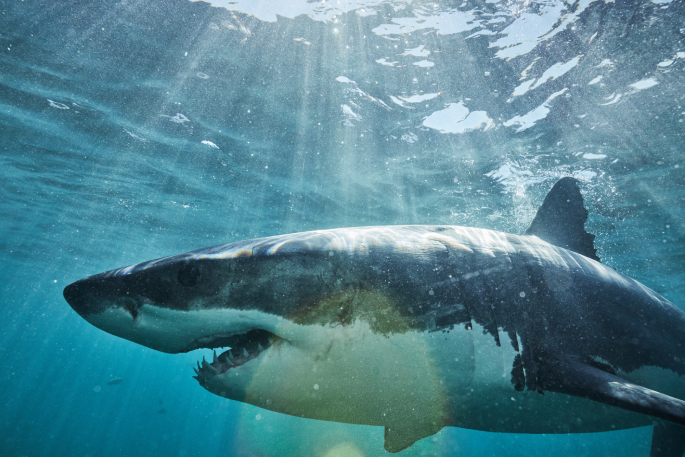 Great White sharks on our coastline is something to be proud of. Photo supplied.
Great White sharks on our coastline is something to be proud of. Photo supplied.
Riley says the goal is “to address conservation and public interest questions relative to a seemingly growing and emerging new population of great white sharks in the North East New Zealand region”.
And with the first four tags coming off the four sharks in 2023 – as they’re designed to – he now plans to tag more this year.
“I still have 20 tags and we’ll look to try and get out as many of those as we can this summer, catering for the fact that it hopefully will be much better weather, much more stable oceanic conditions, but with that, it might entirely redistribute where these great whites are.
“It's been pretty quiet this summer with only a handful of sightings of great whites.”
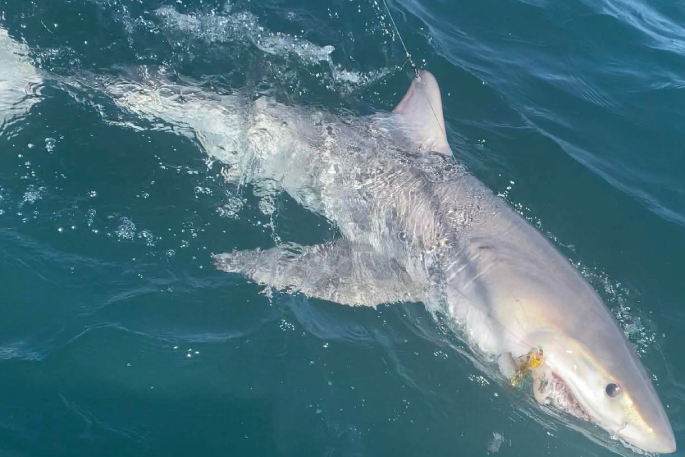 Accidental catch of Great White. Photo supplied.
Accidental catch of Great White. Photo supplied.
So far his research has shown it’s likely pregnant great white sharks use the Bay of Plenty region to pup young sharks as part of the Southwest Pacific population.
These are small sharks that mostly eat fish, crabs and stingrays.
“Sharks like the infamous Daisy were hanging out right in the middle of the flags the first day of school holidays [earlier in 2023] and there were no adverse interactions because these sharks don’t hunt people, they hunt small fish.”
However, Riley does say there’s an increasing number of seals in the area “and we’ve seen a few larger sharks that are seal-hunting ages and keeping tabs on them is important because there’s a big difference between a small shark that eats fish and a bigger shark that eats seals that look like us when we're in a wetsuit”.
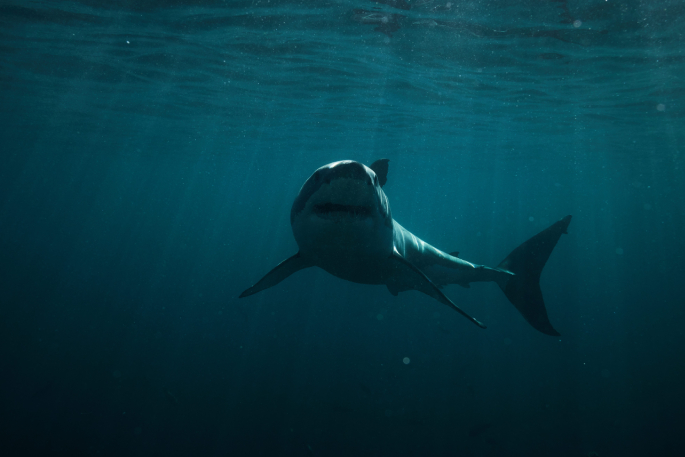 Great White in the deep blue. Photo supplied.
Great White in the deep blue. Photo supplied.
“As a surfer who lives in that area, that’s a big priority for us. So, that’s the sharp end of the stick that we want to really manage.”
For those who enjoy the water this summer, Riley suggests focusing on swimming between the flags, wearing a life jacket, “and staying within your abilities. About 100 people tragically drown every year, so we really need to keep in context the presence of sharks”.
“All I would say for people fishing is don’t fish/dispose of fish where people swim – and don’t swim where people fish, because that is the only catalyst for shark-human interactions to date.”
Riley says if you encounter a shark while swimming you don’t want to start splashing and panicking and swimming away.
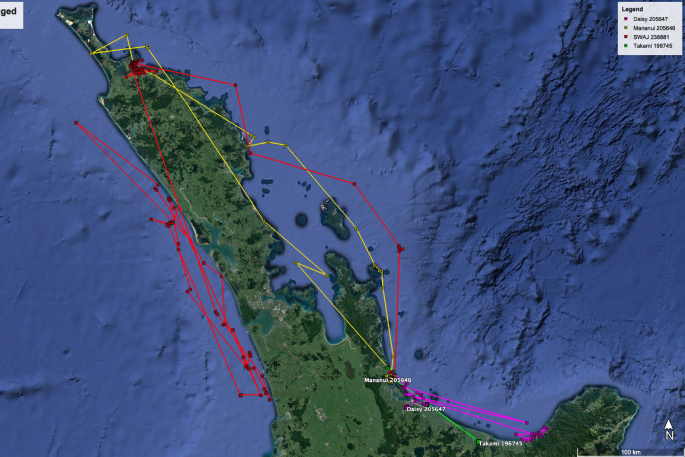 Great White tracking map. Photo supplied.
Great White tracking map. Photo supplied.
“If you feel uncomfortable and you can’t see a predator, it makes sense to get out of the water. Not because it’s inevitably dangerous, but because it’s respectful of a wild environment.
Try to do so in a calm manner.
“If you’re on a boat and you have a shark come around you, enjoy it, take a photo, send it to the Department of Conservation and me, then pull in your burly bag and fishing lines and go somewhere else because you simply risk losing your fish and burly.
“But [because] you also risk catching and entangling and potentially killing endangered and unprotected species.
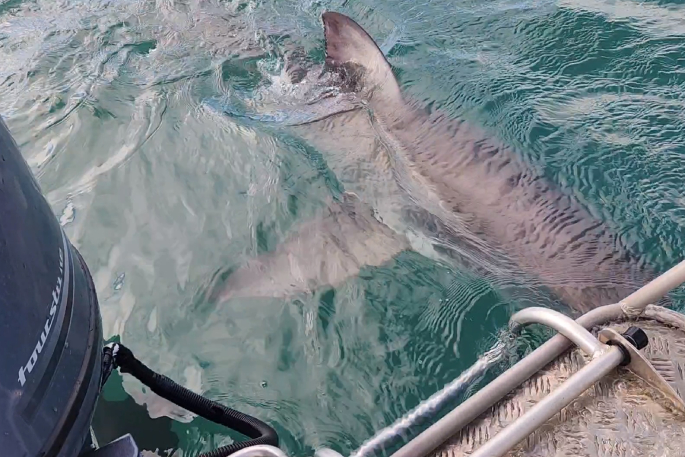 Sharks are not the biggest risk in the ocean, it's drowning. Photo supplied.
Sharks are not the biggest risk in the ocean, it's drowning. Photo supplied.
“A very small minority of people might not want Great Whites in the ocean but they are called an apex keystone species.
“In South Africa recently they’ve lost a lot of their Great White Sharks because of orca and overfishing and the science showed that with Great Whites not being there, the prey they hunt is released from predatory pressure.
“What it does is it increases the prey populations, making them less risk-averse or afraid. And that means they go out and do things like overindulge in the food they eat.
“In South Africa, for example, the seals were overexploiting the fish populations.
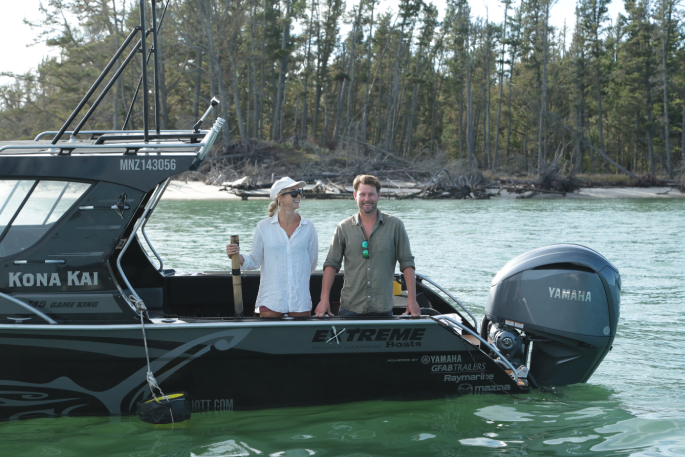 Riley Elliot and wife Amber Jones. Photo supplied.
Riley Elliot and wife Amber Jones. Photo supplied.
“They were also killing endangered penguins, and this had a flow-on effect down the food chain to the point where the seaweed and kelp forests couldn’t be established.
“So the sharks are so valuable to that ocean ecosystem.”
Riley reminds Kiwis that it is also a legal obligation to report it to DOC if you accidentally catch a Great White.
“It’s important that DOC gets those reports.
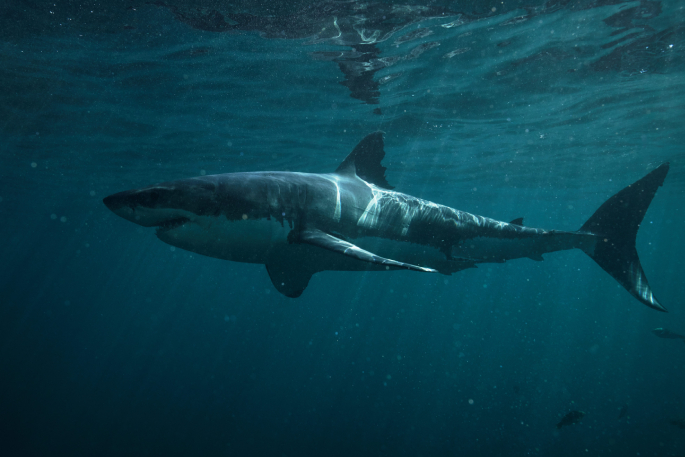 The sharks are valuable to the ocean ecosystem. Photo supplied.
The sharks are valuable to the ocean ecosystem. Photo supplied.
“What we’ve seen is multiple sharks each year killed by people putting set nets out, by commercial set nets, by people catching them accidentally, which is why it’s so important to tag and track these animals, in order to understand where they are most vulnerable, and for people to report catching them by accident to DOC.”
If you see a Great White please report it to Riley at: [email protected] To report a catching or sighting, call 0800 DOC HOT (0800 362 468), email: [email protected]
Subscriptions to the Great White app cost $5 to fund the project, says Riley. The app will always be free on the website: www.sustainableoceansociety.co.nz.

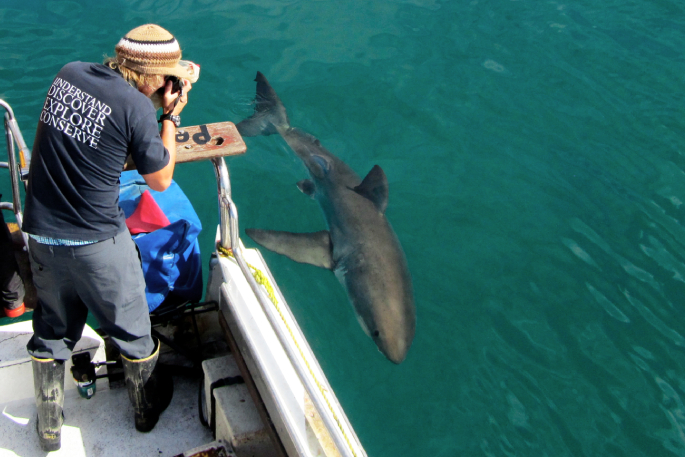

1 comment
Great article.
Posted on 19-01-2024 12:20 | By morepork
Although I'm trying hard to change my mind and accept that these beautiful but fearsome creatures are necessary, and (probably) less harmful to humans than we think, they still scare the bejeezus out of me... Dr. Elliot is doing a fantastic job and deserves our support.
Leave a Comment
You must be logged in to make a comment.